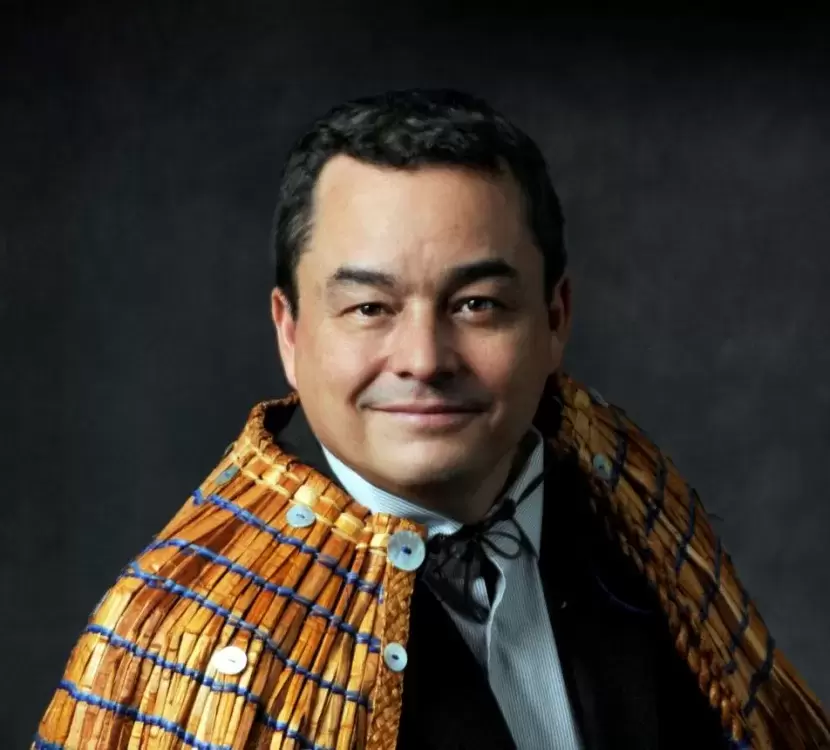$500 billion. That’s the power that First Nations have right now. That’s the leverage that First Nations have in deciding their future within Canada. $500 billion in natural resource projects in Canada, said Assembly of First Nations National Chief Shawn A-in-chut Atleo. There is a lot of talk across the country these days about direct action, he said.
Atleo was the keynote speaker at the recent First Nations Fisheries Council meeting held Nov. 14 to Nov. 16 at the Hupacasath House of Gathering. He said he had been reflecting, in recent weeks, on a number of milestone events and contemplating strategies to respond to what he described as an onslaught of legislation facing First Nations from the federal Conservative government.
The national chief said the Conservative government’s unilateral introduction of omnibus budget bills, and a suite of legislation targeting First Nations people, including private property, matrimonial property and accountability legislation, oversteps First Nation title and rights, oversteps the more than 40 court battles that have gone in First Nations’ favor. The legislation oversteps Canada’s Constitution, the United Nations Declaration on the Rights of Indigenous Peoples, and the obligations articulated in the Royal Proclamation.
“We are in a moment now that requires us to stand up and stand firm,” said Atleo. “We are going to need to continue to confront what’s coming at us from both levels of government.”
Atleo said he had recently watched video from the launch of the BC Treaty Commission 20 years ago, where former Prime Minister Brian Mulroney declared that the land question in the province would be put to rest by the year 2000. Atleo listened as legendary First Nations leader Joe Mathias declared that treaty would not be about extinguishment or denial of rights.
“It feels like we are making the same speeches today in 2012 that were being made in 1992,” said Atleo.
A-in-chut told the group he had recently written a letter to Stephen Harper, reminding the Prime Minister about his own words from the January Crown/First Nations Gathering. Harper had promised he would sit down with First Nations to discuss a resolution to the issue of comprehensive claims. The federal mandates have been out of date since 1986, yet to be brought in line with common law. He reminded the Prime Minister that there was still no policy for implementation of treaties, those modern and pre-confederation agreements.
Also in the letter was a reminder that the federal government promised to discuss new, sustainable, long-term, fair funding arrangements with First Nations.
“How much sense does it make for them to, this summer, come out with a unilateral funding cut,” wondered Atleo. Under this new unilaterally-decided funding arrangement, the Nuu-chah-nulth Tribal Council faces a 60 per cent cut to core funding.
Atleo said there is a lack of congruence with what the Prime Minister promises and the behavior of the federal government.
“We have a deep misunderstanding that still pervades in this country.” First Nations’ expectations are far apart from what the federal government is delivering to them, said Atleo. Government is tinkering around the edges of the Indian Act and tinkering with First Nations rights in a unilateral matter.
There are only two conclusions to draw, said A-in-chut: Either Prime Minister Stephen Harper doesn’t understand and doesn’t care and so is allowing and supporting the behaviour to occur, or maybe he doesn’t understand but does care.
”We’ve got to get that understanding,” Atleo insisted.
He said there are number of anniversaries that draw a line under all that First Nations face today from the Harper Conservatives, including the anniversaries of section 35 and the Royal Commission on Aboriginal Peoples that flowed from the Oka resistance of the 1980s
“We don’t have a constitutional crisis like we had in the 1990s that got section 35. We don’t have Oka that produced the Royal Commission on Aboriginal Peoples,” said Atleo. “So what are our choices? Do we foment that crisis ourselves?”
Make no mistake of the ability that First Nations have when they come together, Atleo said
$500 billion in natural resource projects.
“We will have a say and we’ll let this country and the international community know that we will have a say,” Atleo told the 160 delegates at the fisheries council meeting.
“We are small in numbers,” he said; only three or four per cent of the population.
“It doesn’t matter the size of the dog in the fight. It matters the size of the fight in the dog,” Atleo said.
“Let there be no lack of clarity how I feel about the struggle that we find ourselves in right now.”







